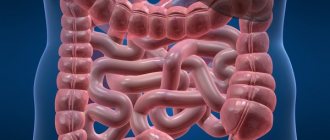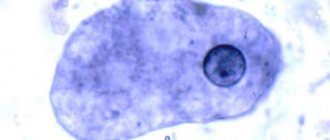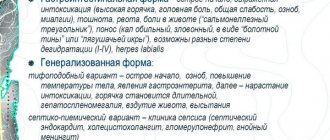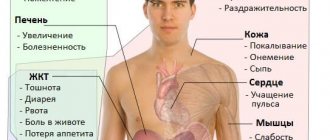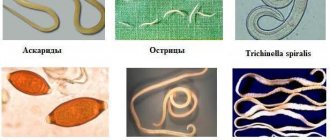According to statistics, most of the world's population is affected by worms. Many people think that parasites live exclusively in the intestines and do not pose much danger, but is this true? In fact, helminths can affect all internal organs of a person, even the lungs, heart, liver, brain and eyes, as a result of which the consequences of such the presence of helminths can be extremely dire.
It is a mistake to believe that helminthic infestation is not dangerous, because there are several hundred varieties of worms that can infect the body of an adult or child. In fact, only a small part of them remains in the intestines, the rest begin to parasitize other organs. Parasitic larvae migrating through the bloodstream and internal organs are extremely dangerous; cases where severe helminthic infestation has caused death are not uncommon.
Helminths are basically worms that parasitize people or animals. There are several million varieties of parasites, but only slightly more than 300 species of helminths are dangerous to humans. The stages of development of these parasites are always different, some can be transmitted directly from a patient to a healthy one, but most often they need an intermediate host in which the development of the helminth occurs.
Worms have good protection; during their development, they have adapted to survival conditions and can withstand even short-term temperature changes, and parasite eggs are able to retain their properties in the soil for several years.
How do helminths enter the body?
Most often, infection occurs through the oral cavity, when worm eggs enter with food or dirty objects and hands.
Recently, there has been a fashion for various exotic dishes, such as sushi; in this case, the fish remains raw, and if the cook violates the cooking technology, infection with the parasite occurs instantly. Also, some worms can penetrate through the skin or through blood transfusion, which is extremely dangerous. But the main source of infection is still the oral cavity, into which the eggs or larvae of worms enter. Then they are activated in the gastric juice, for example, their protective layer dissolves and the parasites enter the intestines, where some remain, and some begin to gnaw through the intestinal walls and migrate to other organs through the bloodstream.
Helminths are especially dangerous for children, since they have weak immunity and not so strong protection against external infections. In addition, children are always exploring the world and are curious; without thinking, they can play with a stray animal, or pick something up from the ground and taste it.
According to parasitologists, worm eggs are often found in large quantities in open sandboxes in the courtyards of our houses; this is simply a breeding ground for parasites that instantly find new hosts.
Pinworm
At night they emerge from the anus and lay a lot of eggs on the circumference of the anus. This causes itching and irritation in the child, and he begins to unconsciously scratch this place in his sleep. This is how the eggs get under the nails, from where they return to the oral cavity and onto surrounding objects.
After laying eggs, the female dies. Therefore, in the case where re-infection is not observed, it is possible to cure the body without drug intervention. The disease caused by pinworms is called enterobiasis.
The main symptoms of helminths
Helminths can have two stages of development - chronic and acute. In the first case, the patient does not even suspect that dangerous helminths are parasitic in his body. Unfortunately, the acute stage of development always remains unnoticed; many are sure that they ate something stale and they have a simple upset stomach and intestines.
Acute stage of helminthiasis development
At this stage, the worms have just penetrated the intestines and they need time to develop into sexually mature individuals. Depending on the number of larvae and the type of worms, the acute stage of development takes from 2 to 10 weeks.
Symptoms of the acute stage:
- allergic reactions, mainly on the skin. Very often, rashes may appear on the body, in some cases in the form of acne and eczema, but usually these are minor redness and severe itching. If a person is infected with pinworms, the itching will be localized near the anus;
- swelling of the face appears, this is especially noticeable in the eyes, the eyelids become heavier;
- lymph nodes become enlarged due to inflammation;
- A cough appears, it can be either dry or with phlegm, and attacks of suffocation are not uncommon. Depending on the type of worms, the patient’s saliva may contain parasite eggs;
- pain in muscles and joints, subsequently the development of arthritis is possible;
- some internal organs may begin to enlarge, these include the spleen, liver and gall bladder;
- A large number of antibodies (eosinophils) appear in the blood, which try to fight uninvited guests in the body. By the way, it is antibodies that lead to allergic reactions;
- vomiting and fever as a reaction to foreign parasites.
Detecting the disease at an early stage is the key to a quick recovery
A person who is attentive to his body and knows how harmful worms are can easily notice malfunctions in his body and symptoms characteristic of helminthiasis. At the slightest suspicion of the presence of a parasite in the body, you should contact a specialist and be sure to undergo the appropriate tests.
If suspicions are not confirmed, great, but if worms are nevertheless identified, then the least damage to the body will be caused at an early stage. And it’s easiest to get rid of them during this period.
Consequences of worms for humans
Weight loss
The patient loses weight quite quickly, despite proper nutrition. This is a very strange sign for a person, so you need to immediately check for the presence of helminths. Parasites always suck out all the most beneficial things from food and the body, so the patient receives only the remains, which are sometimes also diluted with toxic substances - waste from parasites. Everyone knows that during illness, appetite disappears, but some large worms, on the contrary, “demand” increased nutrition from the body, but this still does not affect weight gain.
Skin problems
The skin color becomes pale, sometimes even with a bluish tint, as the body lacks nutrients. As a result, dryness, sometimes cracks and thinness of the skin appear, this is especially noticeable on the hands, feet and face.
Gastrointestinal tract dysfunction
The function of the gastrointestinal tract completely changes; if previously the problems were short-term, then with the development of worms severe constipation and diarrhea occur. Moreover, they can alternately change every other day, which clearly indicates more than simple poisoning.
Simultaneously with disruption of the gastrointestinal tract, the following occurs:
- nausea;
- bloating;
- pain in the right hypochondrium or in the intestines.
With some intestinal worms, which can grow up to several meters, intestinal obstruction occurs, in this case the patient seeks help from doctors and only here the presence of a huge parasite is discovered.
CNS dysfunction
The nervous system begins to become irritated, and causeless disorders appear. Often a person becomes irritable and hot-tempered. As practice has shown, many people with a high level of aggressiveness are tormented by helminthic infestation. Parasites release large amounts of toxins into the blood, which greatly affects the nervous system. In addition to irritability, fears and anxiety, headaches occur; at night, the patient cannot sleep, or often wakes up from nightmares.
Fatigue and persistent loss of strength
Chronic fatigue is also often a symptom of parasite development. Since a person constantly lacks vitamins and nutrients, he quickly gets tired, but he also cannot fully rest due to sleep disorders. As a result, the patient becomes absent-minded, forgets a lot, does not want to work and only wants to sleep or lie down and do nothing.
Weakening of the immune system
The immune system weakens due to low consumption of nutrients, and secondary infections may occur. Often, a person with worms easily catches colds or other infectious diseases, which are not supposed to be dangerous for people with strong immunity.
Damage to internal organs
Since worms parasitize not only in the intestines, they can affect the heart, lungs, liver, eyes, brain and other vital organs. In the absence of treatment and prolonged helminthic infestation, this can lead to severe pain and necrosis, and subsequently to death. Often, such advanced cases are solved by surgical intervention, but in this case the person already remains disabled.
Methods of infection
There are frequent cases of infection of clean people. Not washing hands on time, working on the ground. Flies, food, swimming in rivers or lakes, pets and banknotes can cause infestation with worms.
Water and soil
Soil is a suitable place for helminth eggs. The soil gets on the plant, then on the fruit and on the hands. This is how food contamination occurs. Washing plant products in running water and pouring boiling water over them is a way to avoid infection.
Cats and dogs that immediately enter the house after a walk outside pick up dirt on their paws, which can contain a variety of worm eggs.
Flies and cockroaches crawling everywhere are also dangerous to humans. When they sit on food, they infect it.
After contact with soil, the risk of infection increases greatly. This is relevant for a child who actively interacts with the outside world. In 90% of cases, the disease occurs due to unwashed hands.
Eggs can enter the body through the skin of the feet and ankles.
Swallowing water while swimming is a serious risk of getting a disease associated with the appearance of worms, which live in large quantities in the water.
Contacts between people
These are the most effective methods of infection that there can be. For example, a helminth causes itching in the anus. The child scratches there, then touches door handles, dishes, toys and contributes to helminthiasis in adults.
Contact with animals
You can get worms from pets by contacting with your hands, playing, or stroking the animal.
- Toxocariasis (dogs). Internal organs are damaged: liver, heart, lungs, kidneys, pancreas, brain, eyes. They become infected through fur and feces.
- Hookworm (cats and dogs). The human body is not suitable for parasite life. Therefore, the skin is where they stay for a long time. Pimples break out and are very itchy.
- Dirofilariasis (cats). The heart and pulmonary artery are where they accumulate. The consequences are heart failure and death. The infection is caused by a flea or mosquito that has bitten a sick animal.
- Echinococcosis (dog feces). With worms of this type, cysts affect the liver, lungs, kidneys, bones, brain or other organ. Cysts grow rapidly, the tissues they compress stop functioning and die. Eggs enter the human body through contact with a dog or water contaminated with eggs.
Consequences of worms during pregnancy
Parasites can have a negative impact on a pregnant woman, but most importantly, they are also dangerous to the fetus. It is not uncommon for some worms to damage the placenta, and subsequently the child begins to develop congenital diseases.
But still, the fetus is more affected by intoxication, which leads to weak immunity and a predisposition to various kinds of diseases after birth.
Danger to the intestines
Many parasites prefer to live in the human digestive system. Here they suppress the existing microflora and colonize them with their putrefactive microorganisms. This leads to the development of dysbacteriosis, damage to the walls of the stomach and intestines.
A person suffers from constant diarrhea, which is accompanied by dangerous dehydration. If helminths have settled in the upper intestines, then increased formation of intestinal gases is observed. When parasites multiply in the colon, there is a risk of developing obstruction. This situation can only be corrected with urgent surgery.
Diagnosis and treatment for parasites
If you or your loved ones have any of the symptoms described above, this only indicates a possible helminthic infestation. Therefore, you should not self-medicate or panic; it is better to consult a parasitologist, describe your concerns and get tested.
Get your stool tested
Only fresh feces are suitable for testing; usually within an hour the sample must be sent to the laboratory for analysis, this is the only way to achieve a more accurate result. If you delay, the parasite eggs may no longer be noticed.
Stool donation occurs several times, since one test is not enough; the time interval between each test is several days or weeks, as recommended by the doctor. It is also advisable to take a skin scraping near the anus.
Donate blood for analysis
Secondly, it is necessary to take a blood test; it can be taken either from a vein or from a finger. The blood of a sick person contains a large amount of antibodies, and in some cases, the parasites themselves, which are quickly determined in the laboratory. The analysis is usually carried out once, which is quite enough, since the accuracy of detecting helminths is extremely high.
Additionally, the doctor asks the patient what symptoms are bothering him while the test results are being prepared. Tests allow you to find out how severely the body is affected by helminthic infestation, which will allow you to prescribe a more effective method of curing a sick person.
The doctor must take into account weight, age and degree of infection; most often, treatment takes place at home, according to the doctor’s instructions. In rare cases, when the helminthic infestation is severely advanced, surgery may be required to remove growths or dead tissue containing parasites.
Modern treatment methods make it possible to get rid of helminths almost always, although severely advanced cases are extremely difficult to cure, and the person may remain disabled for the rest of his life.
If helminths have already been detected, then they must be urgently destroyed, and then undergo a rehabilitation course in order to increase immunity.
Traumatic effect
Injury to organs and tissues in places of parasitism is due to the presence of various devices in helminths, with the help of which they are held in place (hooks, suction cups, etc.).
Most often, worms are “located” in the intestines and some parasites are absorbed in such a way that the mucous membrane at the site of attachment begins to collapse. The result of this is bleeding, irritation of nerve endings (pain), and sometimes intestinal necrosis.
Injury to organs and tissues in places of parasitism is due to the presence of various devices in helminths, with the help of which they are held in place (hooks, suction cups, etc.).
This is how, for example, hookworms work - they attach themselves to the intestinal mucosa with the help of teeth and begin to feed on blood, resulting in bleeding ulcers (up to 2 cm in diameter!). This leads to the development of iron deficiency anemia, decreased blood protein, and damage to the central nervous system.
Preventive measures
In order to never learn about the consequences of parasites for humans from personal experience, always observe the rules of personal hygiene and remind your loved ones about this.
Rules for reducing the risk of infection with dangerous worms
- Wash your hands with soap as often as possible, especially after coming from outside. Parasite eggs can be found everywhere, for example on money, handrails of public transport or door handles. You need to be especially careful in public toilets; be sure to wash your hands after visiting them.
- If you are on the street and decide to have a snack, then try to wipe your hands with special napkins or pocket hand sanitizers, but if possible, it is better to wash your hands with soap;
- Any fruits, vegetables and herbs need to be washed under running water; you cannot simply wipe a freshly picked apple and eat it, because this does not guarantee that the parasite eggs have simply flown off the surface. It is in the soil and outside in the dust that many parasites are found;
- Never bite your nails or rough skin around them, and always try to keep your nails trimmed, as parasite eggs can accumulate underneath them;
- Do not put pens or other third-party objects in your mouth when writing or thinking; many people do not even notice such actions.
- It is important for humans to avoid contact with street animals; unfortunately, almost all street inhabitants have a lot of health problems due to helminthic infestation. Even pets often become infected with parasites during walks, so it is necessary to carry out prevention twice a year in the form of taking anthelmintic drugs (late autumn and spring);
- Consume meat products only after high-quality heat treatment. Even sausages are often better served by frying or boiling. Do not under any circumstances eat raw fish or caviar in little-known establishments, as this is very dangerous.
Mechanical impact
The mechanism of action of worms on the human body is due to compression of vital organs caused by large parasites.
Large worms “do not fit” in human organs and are forced to fold several times.
For example:
- In the intestines, worms can block the entire intestinal lumen, causing intestinal obstruction.
- Echinococcus, localized in the brain, increases in volume and stimulates the appearance of brain tumors and cerebrovascular accidents.
- Worms located in the biliary tract begin to block the outflow of bile and provoke hepatitis and cholelithiasis.
The mechanical effect of worms on the human body is very dangerous and can cause many chronic diseases.
Allergic reaction
The result of the interaction of worms with the human body at different stages of their development is the appearance of various allergic reactions. In the acute phase of helminthiasis (infection with worms), pathological changes appear associated with an allergic reaction to the migration of larvae in the human body.
Regardless of the type of helminths, their localization, as well as the routes of migration of the larvae, the same syndromes of development of allergic reactions are observed: edema, myalgia, skin rashes, fever, arthralgia, etc.
When infected with worms, hepatitis can occur.
This is fraught with the occurrence of serious diseases:
- Hepatitis A;
- Meningoencephalitis;
- Myocarditis;
- Eosinophilic pneumonia;
- Disturbances in the hemostasis system.
In children, an allergic reaction often manifests itself in the form of atopic dermatitis.
Effect on the nervous system
General poisoning of the body and vitamin deficiency lead to disruption of the nervous system. People begin to feel a deterioration in their health, but they cannot understand the reasons, blaming it all on lack of time and workload.
Signs of nervous system failure:
- increased irritability;
- constant fatigue;
- insomnia;
- aggressiveness;
- absent-mindedness;
- forgetfulness;
- dullness of attention;
- inhibition of actions.
Nervous system disorders
It is easier for people to take a pill than to find the cause of this condition. Conventional medications will not help; you need to get rid of the parasites. Children suffer the most from problems with their nervous system. They do not yet know how to manage their emotions. They become whiny and more often ask to turn on cartoons and eat sweets. They have problems with sleep - they fall asleep poorly, sleep anxiously, and have difficulty waking up.
